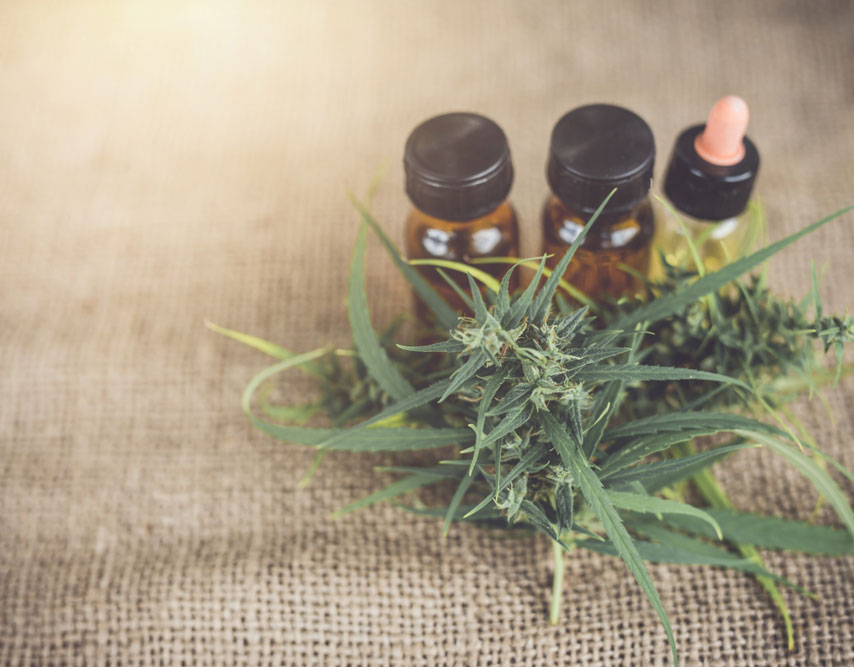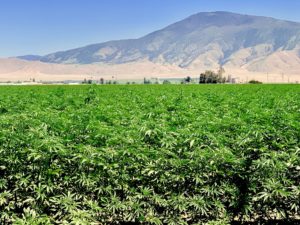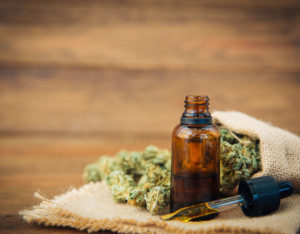Could CBD be harmful to the liver? A recent scientific study undertaken by the University of Arkansas for Medical Sciences points to yes.
The study, published in the monthly scientific journal Molecules, exposed mice to a CBD-rich extract produced by GW Pharmaceuticals, according to Dr. Igor Koturbash of the University of Arkansas for Medical Sciences, one of the study’s authors. GW Pharmaceuticals developed Epidiolex—the only CBD-based medication the FDA has approved for medical use thus far.
“We know that CBD causes drug-induced liver injury,” says Alice Mead of GW Pharmaceuticals, speaking before an FDA panel in May. “Therefore physicians are instructed [to carefully] monitor liver function with blood tests when treating patients with Epidiolex.”
Indeed, clinical trials for Epidiolex revealed that elevated liver enzymes are one of the drug’s most common side effects.
Mead claimed that negative side effects from CBD begin to appear at dosages of approximately 70 mg per day for an average adult. “These side effects appear at relatively low levels probably because CBD affects multiple systems in the body,” she told the FDA panel.
Still, GW Pharmaceuticals is researching CBD’s efficacy in treating eight different disease areas, according to Mead.
For the study, Koturbash and his colleagues administered doses of the CBD-rich extract to mice in order to further gauge the product’s impact on liver function.
One test measured the impact of acute doses of the CBD extract in mice over a 24-hour period. The mice were exposed to 0, 246, 738, or 2,460 mg of the CBD extract for each kilogram (kg) of the mouse’s body weight. Mice typically weigh approximately one quarter of one kilogram.
Another test measured the impact of “sub-acute” doses of CBD on liver function over a longer period. Mice in this group were dosed daily with 0, 61.5, 184.5, or 615 mg per kilogram of their body weight daily for 10 days.
Dr. Pal Pacher, a senior investigator for the National Institutes of Health who also researches CBD, says that some of those dosages are extremely high. He notes that the highest dose the Arkansas mice were exposed to—2,460 mg of CBD per one kilogram of body weight—would be equivalent to administering 200 grams of CBD to an 80-kilogram person (approximately 176 pounds)—a figure that is hundreds of times the dose level used in clinical trials.
Adrian Devitt-Lee, a research chemist with Project CBD, makes a similar point: “The work that physicians have done with Epidiolex has provided important insights into legitimate worries about using isolate CBD in certain patients,” Devitt-Lee writes. “But warning about the dangers of drinking over 10 bottles of Epidiolex at once adds nothing useful to the discussion.”
The Arkansas study did address this point, stating that, “2,460 mg [per one kilogram of body weight] is not applicable to most real-life scenarios, [but] it does provide critical information regarding the potential consequences of CBD overdose as well as for doses needed for further sub-chronic and chronic toxicity studies.”
“Just for a moment, think about this,” Pacher writes in an email to CBDSnapshot.com, “the most commonly used over-the-counter analgesic, paracetamol/acetaminophen/Tylenol, at ten times exceeding the recommended dose would induce liver toxicity in lots of people, in some even liver failure. [One hundred times] exceeding the normal dose would induce liver failure in most human subjects.”
“Another analogy,” Pacher adds, “most conventional antiepileptic drugs would very likely kill you even at doses 20 to 50 times above their recommended dose…. This paper is a perfect illustration why very rigorous quality control and regulation would be required with all cannabis-based medicines.”
Koturbash argued that his study’s doses were calibrated to account for a mouse’s metabolism and body surface area, which of course differs significantly from those of humans. He added that it’s appropriate and necessary to test the impact of high doses of CBD given the lack of regulation and quality standards in the marketplace.
Pacher co-authored a 2017 study published in Scientific Reports that demonstrates CBD’s potential to diminish alcohol-induced liver injury. This study used significantly lower dosages—mice were treated with 5 to 10 mg of CBD daily per one kilogram of body weight after receiving doses of ethanol.
Pacher further took issue with the Arkansas study’s use of a CBD-rich concentrate, which included 1.69 percent THC. “They used cannabidiol-rich extract, which contains THC, which is known to promote liver injury through activation of cannabinoid one receptors in the liver,” he says. “Given the extremely high doses used, the amount of THC in their extract is biologically quite significant.”
Koturbash plans to continue his research to “identify the safety margins,” for CBD, as well as research the cannabinoid’s interactions with other drugs. He and his University of Arkansas colleagues recently published an additional Molecules study that tracks CBD’s interactions with a common over-the-counter drug that can cause liver injury: acetaminophen (Tylenol).
He and his colleagues found there is indeed potential for drug interactions that exacerbate liver damage.
Mead made a similar point before the FDA in May, stating that CBD has powerful drug-drug interactions with medications such Warfarin, a commonly prescribed blood thinner.
Koturbash and his colleague’s study of the interaction between CBD and acetaminophen carries heavy implications for seniors, older women in particular. According to the publication, 94 percent of older women take at least one medication, and 57 percent take five or more.
A few things appear likely at this point: First, excessive amounts of CBD can be harmful to the human liver. Second, scientists, including Koturbash and Pacher and companies like GW Pharmaceuticals will continue to investigate CBD’s potential for both harm and healing for years to come. And third, until quality standards and testing, drug-drug interaction information, and dosing recommendations exist for CBD products, the debate over the safety and efficacy of the product will rage on.




